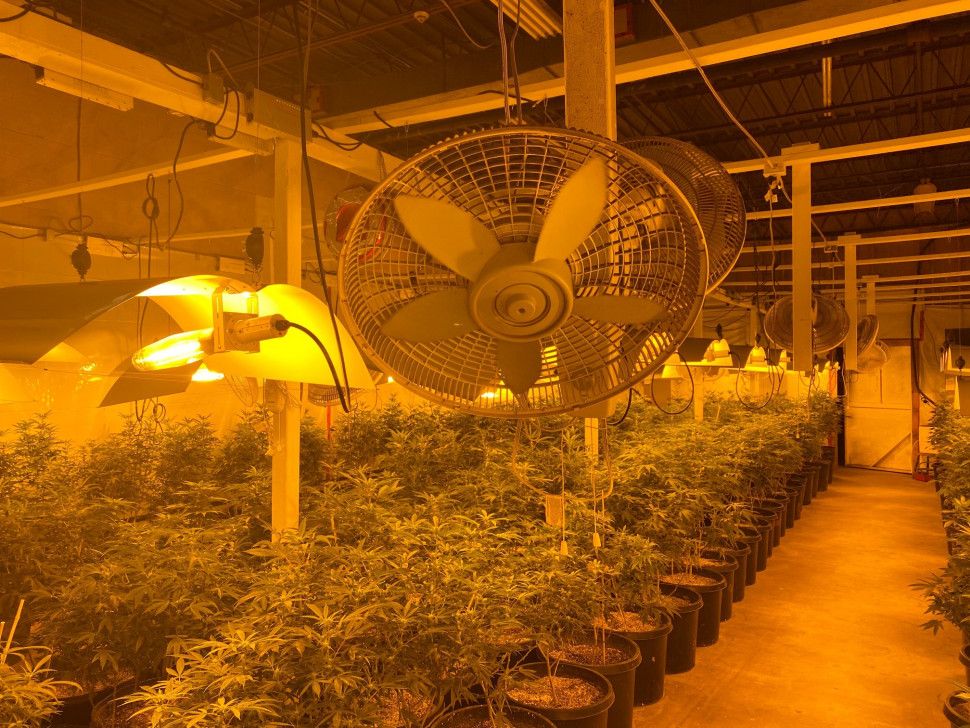
A bylaw preventing designated medical cannabis grows from operating in residential areas in Winnipeg has now moved one step closer to becoming law.
The city’s property committee unanimously approved the bylaw today that will apply to “buildings or structures where medical cannabis is produced by a person who has been authorized by Health Canada to produce a limited amount of medical cannabis on behalf of another person who has a medical prescription.”
The new law will prevent any building that houses a designated medical cannabis grow to be located within 300 yards of any dwelling unit, park, or school.
The new bylaw still requires approval from the city’s executive policy committee and city council.
This change is the first of a two-pronged approach the city is taking to deal with such designated medical cannabis grows. The second is a requirement for designated growers to also get a business licence from the city. If passed, this would require any designated medical grower operating in Winnipeg to be inspected by the city, which could suspend or revoke a licence, or issue fines, if there are any health and/or safety concerns with the site.
Many municipalities in Canada have long expressed frustration at what they feel is an inability to manage these kinds of designated medical cannabis licenses, which often operate in residential zones. Despite not allowing commercial sales, these licences can allow for very large plant totals based on a doctor’s recommendation.
In 2020 in British Columbia the Sunshine Coast Regional District tabled a resolution at the annual Union of British Columbia Municipalities calling for more power for municipalities in dealing with personal and designated medical grow licenses in residential communities.
Also in 2020, Raquel Dancho, the MP for the riding of Kildonan-St. Paul in Winnipeg raised similar concerns in the House, calling on Health Canada to close a “loophole” that allows for these types of grows.
Similarly, Diane Finley, an MP from Haldimand-Norfolk in Ontario raised the same issue in the House the same year, saying the current regulations create a “loophole” that large-scale growers are taking advantage of. OPP says criminal enterprises exploit the Health Canada medical, personal and designated cannabis production regime.
Since that time, Health Canada has increased their inspections of such medical grows. The federal regulator’s most recent inspection and enforcement update showed 82 personal or designated grows inspected from April 1, 2019 to March 31, 2020, compared to only nine inspected from October 2018 to March 31, 2019.
Personal growers under the medical cannabis program in Canada can only grow for themselves, but designated growers can grow for up to four approved patients at one site, meaning some of these operations can have hundreds or even thousands of plants in one location at a time. In some cases, they have been found to be selling into the black market, such as several large raids in Ontario in 2020 involving thousands of plants and pounds of cannabis and ties to criminal organizations.
Because they are not commercially regulated like federal licensed cannabis growers and processors, there are no federal requirements for things like odour control, although municipalities and counties can establish their own zoning bylaws to address this issue.
Recent figures from Health Canada show that the number of individuals registered with Health Canada for personal and designated cultivation of cannabis for their own medical purposes increased 19% from 39,525 in March 2021 to 47,147 in September 2021.
Most of the increase in registrations for personal/designated production is from 3 Provinces, Ontario with an increase of 2,287 registrations, Quebec with 2,155 and British Columbia with 2,028, compared to March 2021.











